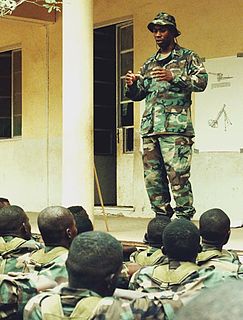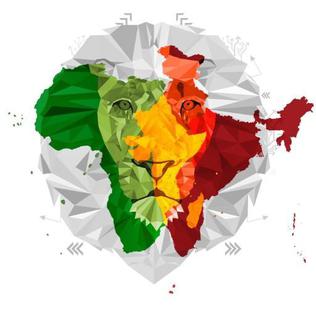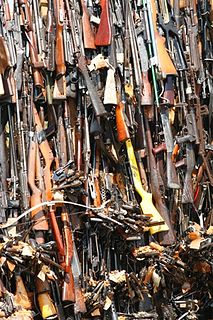 W
WAbahlali baseMjondolo is a shack dwellers' movement in South Africa which campaigns both against evictions and for public housing. The movement grew out of a road blockade organised from the Kennedy Road shack settlement in the city of Durban in early 2005 and expanded to the cities of Pietermaritzburg and Cape Town. It is the largest shack dwellers' organisation in South Africa, campaigning to improve the living conditions of poor people and to democratise society from below. As of 2010, it had 25,000 members.
 W
WThe Africa Liberal Network (ALN) is an organization composed of 47 political parties from 29 countries in Africa. It is an associated organisation of Liberal International, the political family to which Liberal Democratic parties belong. The ALN serves to promote liberal objectives and principles throughout the continent.
 W
WThe African Continental Free Trade Area (AfCFTA) is a free trade area which, as of 2018, includes 28 countries. It was created by the African Continental Free Trade Agreement among 54 of the 55 African Union nations. The free-trade area is the largest in the world in terms of the number of participating countries since the formation of the World Trade Organization. Accra, Ghana serves as the Secretariat of AFCFTA and was commissioned and handed over to the AU by the President of Ghana His Excellency Nana Addo Dankwa Akuffo Addo on August 18, 2020 in Accra.
 W
WThe African Contingency Operations Training and Assistance (ACOTA) program, formerly the African Crisis Response Initiative (ACRI), is a United States program to train military trainers and equip African national militaries to conduct peace support operations and humanitarian relief.
 W
WAfrican nationalism is an umbrella term which refers to a group of political ideologies, mainly within Sub-Saharan Africa, which are based on the idea of national self-determination and the creation of nation states. The ideology emerged under European colonial rule during the 19th and 20th centuries and was loosely inspired by nationalist ideas from Europe. Originally, African nationalism was based on demands for self-determination and played an important role in forcing the process of decolonisation of Africa. However, the term refers to a broad range of different ideological and political movements and should not be confused with Pan-Africanism which may seek the federation of several or all nation states in Africa.
 W
WThe African Renaissance is the concept that African people and nations shall overcome the current challenges confronting the continent and achieve cultural, scientific, and economic renewal. The African Renaissance concept was first articulated by Cheikh Anta Diop in a series of essays beginning in 1946, which are collected in his book Towards the African Renaissance: Essays in Culture and Development, 1946-1960. This concept has been further popularized by former South African President Thabo Mbeki during his term of office, and it continues to be a key part of the post-apartheid intellectual agenda. It has found new expression and momentum within the International Decade for People of African Descent through the Door of Return initiative which is coming out of the historical Maroon community of Accompong Jamaica in cooperation with Nigeria, Ghana and Zimbabwe. The revival is being led by Accompong Finance Minister Timothy E. McPherson Jr. and Nigeria's Senior Special Assistant to the President on Diaspora and Foreign Affairs, Hon. Abike Dabiri.
 W
WAfrican socialism is a belief in sharing economic resources in a traditional African way, as distinct from classical socialism. Many African politicians of the 1950s and 1960s professed their support for African socialism, although definitions and interpretations of this term varied considerably. These politicians include Julius Nyerere of Tanzania, Kwame Nkrumah of Ghana, and François Tombalbaye of Chad, among others.
 W
WBlood diamonds are diamonds mined in a war zone and sold to finance an insurgency, an invading army's war efforts, or a warlord's activity. The term is used to highlight the negative consequences of the diamond trade in certain areas, or to label an individual diamond as having come from such an area. Diamonds mined during the recent civil wars in Angola, Ivory Coast, Sierra Leone, Liberia, Guinea, and Guinea Bissau have been given the label. The term conflict resource refers to analogous situations involving other natural resources.
 W
WThe Democrat Union of Africa is an alliance of centre-right political parties in Africa. Founded in Dakar, Senegal, in 1997, it is affiliated with the global International Democrat Union. It aims to bring together parties with similar aims and political goals, such as the protection of democracy and individual liberty, from the whole of Africa, with its headquarters being found in Accra, Ghana.
 W
WThe Federation of Green Parties of Africa is an umbrella body of the various national Green parties and environmental parties in Africa. The formal coalition, the African Greens Federation (AGF) formed in 2010 at a conference in Kampala, Uganda. As part of the Global Greens, founded in 2001 in Canberra, Australia, the parties included in the Federation of Green Parties of Africa follow the Global Greens Charter. The organization's permanent administration is in Ouagadougou, the capital of Burkina Faso, where the predominant green organization is the Rassemblement Des Ecologistes du Burkina Faso. These parties tend to, but not always, be left-leaning and often do not have widespread support in their respective countries.
 W
WThe Forum on China–Africa Cooperation (FOCAC) simplified Chinese: 中非合作论坛; traditional Chinese: 中非合作論壇; pinyin: Zhōng Fēi hézuò lùntán; French: Forum sur la coopération sino-africaine) is an official forum between the People's Republic of China and all states in Africa. There have been three summits held to date, with the most recent having occurred from September 3–4, 2018 in Beijing, China. The first summit was held November 2006, also in Beijing.
 W
WThe history of West Africa has been commonly divided into its prehistory, the Iron Age in Africa, the major polities flourishing, the colonial period, and finally the post-independence era, in which the current nations were formed. West Africa is west of an imagined north-south axis lying close to 10° east longitude, bordered by the Atlantic Ocean and Sahara Desert.
 W
WThe Ibrahim Index of African Governance (IIAG), established in 2007, provides an annual assessment of the quality of governance in African countries. Compiled by combining over 100 variables from more than 30 independent African and global institutions, the IIAG is the most comprehensive collection of data on African governance.
 W
WThe India–Africa Forum Summit (IAFS) is the official platform for the African-Indian relations. IAFS will be held once in every three years. It was first held from April 4 to April 8, 2008 in New Delhi, India. It was the first such meeting between the heads of state and government of India and 14 countries of Africa chosen by the African Union. Libya and Egypt's heads of state did not attend.
 W
WThe Third India-Africa Forum Summit (IAFS-III) was held in New Delhi, India from 26–30 October 2015. The five-day summit started with consultations on official level followed by the head of states/governments level summit on 29 October 2015 with scheduled bilateral meetings on 30 October 2015. This is going to be India's biggest diplomatic outreach involving delegates from a large number of African nations.
 W
WThe Intergovernmental Authority on Development (IGAD) is an eight-country trade bloc in Africa. It includes governments from the Horn of Africa, Nile Valley and the African Great Lakes. Its headquarters are in Djibouti City.
 W
WAfrica has been an important world region for Japan's trade and investment. Japan had some historical experience with Africa and little interest in economic ties with the region, except for development of raw material supplies.
 W
WThe term "new generation" or "new breed" of African leaders was a buzzword widely used in the mid-late 1990s to express optimism in a new generation of African leadership. It has since fallen out of favor, along with several of the leaders the term was used for.
 W
WThe Organisation of African Unity was an intergovernmental organization established on 25 May 1963 in Addis Ababa, Ethiopia, with 32 signatory governments. One of the main heads for OAU's establishment was Kwame Nkrumah of Ghana. It was disbanded on 9 July 2002 by its last chairman, South African President Thabo Mbeki, and replaced by the African Union (AU). Some of the key aims of the OAU were to encourage political and economic integration among member states, and to eradicate colonialism and neo-colonialism from the African continent. Although it achieved some success, there were also differences of opinion as to how that was going to be achieved.
 W
WThe Organisation of African, Caribbean and Pacific States (OACPS) is a group of countries in Africa, the Caribbean, and the Pacific that was created by the Georgetown Agreement in 1975. Formerly known as African, Caribbean and Pacific Group of States (ACP), the organisation's main objectives are sustainable development and poverty reduction within its member states, as well as their greater integration into the world's economy. All of the member states, except Cuba, are signatories to the Cotonou Agreement with the European Union.
 W
WThe Southern African Social Forum(SASF) was a Social Forum conference held in a different Southern Africa county each year.
 W
WThe Union of African States, sometimes called the Ghana–Guinea–Mali Union, was a short-lived and loose regional organization formed 1958 linking the West African nations of Ghana and Guinea as the Union of Independent African States. Mali joined in 1960. It disbanded in 1963.
 W
WUnited Nations Security Council resolution 1170, adopted unanimously on 27 May 1998, after considering the situation across the African continent, the Council decided to establish an ad hoc Working Group to review the Secretary-General Kofi Annan's recommendations concerning the maintenance of international peace and security in Africa.
 W
WThe United Nations Security Council resolution 1196 was adopted unanimously on 16 September 1998, after recalling Resolution 1170 (1998) on Africa; the Council discussed the importance of strengthening the effectiveness of arms embargoes in place in several countries across the continent.
 W
WUnited Nations Security Council resolution 1197, adopted unanimously on 18 September 1998, after reaffirming its primary responsibility to maintain international peace and security, the Council addressed co-operation efforts with the Organisation of African Unity (OAU).
 W
WUnited Nations Security Council resolution 1208, adopted unanimously on 19 November 1998, after recalling Resolution 1170 (1998) on Africa, the Council discussed the treatment and status of refugees on the continent.
 W
WUnited Nations Security Council resolution 1209, adopted unanimously on 19 November 1998, after recalling resolutions 1170 (1998) and 1196 (1998) on Africa, the Council addressed illicit arms flows on the continent.
 W
WThe United States–Africa Leaders Summit was an international summit held in Washington D.C. from August 4–6, 2014. Leaders from fifty African states attended the three-day summit, which was hosted by U.S. President Barack Obama. The summit primarily focused on trade, investment and security of the continent. Leaders from 50 of the 54 existing African sovereign nations were invited to attend. After the summit, the White House produced a number of Fact Sheets that summarized major outcomes.